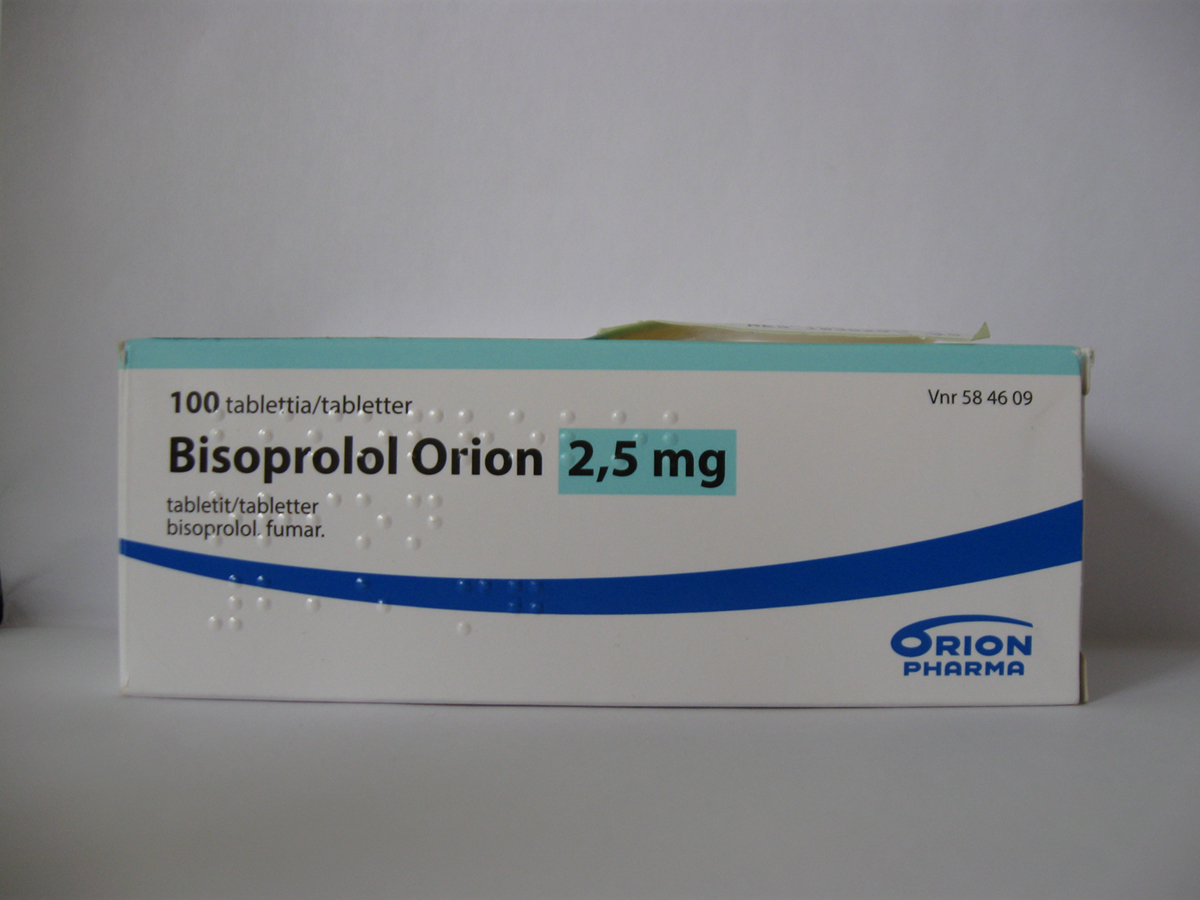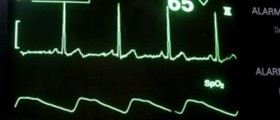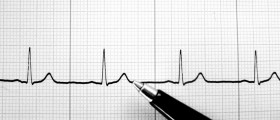
Bisoprolol
Bisoprolol is one of the beta blockers, precisely beta adrenergic receptor blockers. This group also includes medications such as propranolol (Inderal), timolol (Blocadren), atenolol (Tenormin), and also labetalol, carvedilol, esmolol, acebutol etc.
These medications are used to treat different heart conditions, usually for arrhythmias, angina, congestive heart failure, hypertension and the protection of the heart after the heart attack.
Bisoprolol blocks the effects of neurotransmitters (epinephrine and norepinephrine) to the nerves that come to the heart and blood vessels. Because of this effect, bisoprolol cause dilatation of the blood vessels and lead to lower heart rate and heart force. This medication can also cause bronchoconstriction (constriction of the airways).
This medication is prescribed as a tablet, containing 5mg or 10mg of the active ingredient, bisoprolol. The usual dose of bisoprolol is between 2.5 and 20mg per day, once a day. It can be used alone or combined with other medications.
Warning
Bisoprolol is known to interact with many other medications.
Rifampin used with this medication may stimulate the metabolism and reduce the effectiveness of bisoprolol. NSAIDs (non steroidal anti inflammatory medications) used to treat milder pains can decrease the effectiveness of beta blockers and lower blood pressure. Those medications include naproxen (Naprosyn, Anaprox, Aleve) and ibuprofen (Motrin, Advil).
Other drugs, like calcium channel blockers, such as verapamil (Isoptin, Calan) and diltiazem (Tiazac, Cardizem) may lead to the increased effect of bisoprolol to the heart, leading to seriously slow heart rate and heartbeat. Also, digoxin (Lanoxin) is known to reduce the heart rate when used together with bisoprolol.
There are not enough of scientific data to conclude that bisoprolol can be used in pregnancy or in breastfeeding mothers. It is unknown if and how the medication affects the unborn or newborn baby.
Side Effects
As all beta blockers, bisoprolol is usually well tolerated. The most common side effects include nausea, vomiting, abdominal pain, diarrhea, headache and cold extremities. Patients have reported depression, dizziness, tiredness, and also numbness in their extremities and problems with the throat and shortness of breath. Low blood pressure and slow heart rate were also recorded.
Sometimes, this medication may worsen the condition in the patients suffering from asthma attacks or other respiratory illnesses, such as chronic bronchitis or emphysema.
If used in patients who already have slow heart rate or heart blocks, bisoprolol can cause dangerously low heart rate and sometimes cause shock.
Diabetics using bisoprolol should be especially careful, for this medication may cover the symptoms of hypoglycemia (low blood sugar).
Stopping the medication should always be under the medical supervision, because it may worsen the angina or provoke heart attack. The dose of bisoprolol is usually lowered over the week or two, before completely stopped.

















Your thoughts on this
Loading...